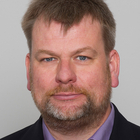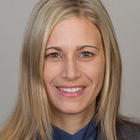Briefing Paper
Changing global patterns of poverty
Loewe, Markus / Nicole RippinBriefing Paper (3/2012)
Bonn: German Development Institute / Deutsches Institut für Entwicklungspolitik (DIE)
Dt. Ausg. u.d.T.:
Globale Armutsstrukturen im Wandel
(Analysen und Stellungnahmen 7/2012)
Global patterns of poverty do not look like they did twenty years ago. Many developing countries have been able to raise their average per-capita income over the last two decades; 18 have even trespassed the highly noticed – though arbitrary – ceiling differentiating between ‘low income’ and ‘middle income countries’ (LICs and MICs).The latter event in particular has attracted much attention has the most populous countries are among those that ‘graduated’ – with the effect that 72 per cent of the extreme income-poor world-wide (defined by the 1.25 USD Purchasing Power Parity (PPP) poverty line) are now living in MICs. Donors increasingly wonder whether development co-operation should therefore focus more on the remaining LICs or rather explore new ways of assisting MICs in poverty alleviation.
We argue that whatever future development co-operation with MICs may look like, poverty eradication should take a central place in it. Even if per-capita income levels are rising in most countries, it is much too early to celebrate the end of global poverty:
- The fact that some LICs have become MICs does not mean that they have been able to eradicate poverty. The recently graduated countries still account for more than half of the world’s extreme income poor people. The simple crossing an artificial per-capita income threshold is not an indicator of structural change.
- Rising per capita income levels translate only on an aggregate level into a decline in the share of people in extreme poverty. Significant differences exist on a regionally disaggregated level. For instance, countries in East and Southeast Asia have achieved significant progress in income poverty reduction, while countries in Latin America, Central Asia and the Middle East have been less successful. In sub-Saharan Africa poverty has even been on the rise since 1990. Likewise, while some countries in all world regions were able to reduce income poverty substantially, other countries in the same regions are still suffering from stagnating or even rising poverty rates. And even within countries, progress in poverty reduction is very uneven in many cases.
- While the incidence of income poverty is declining in most parts of the world, income inequality is rising almost everywhere. Global income poverty is no longer mainly the result of a rich global North and a disadvantaged global South, but increasingly due to widening gaps in income distribution within countries. A major challenge for many countries for the decades to come is thus the problem of persistent regional and social pockets of poverty.
- Efforts to reduce poverty were more successful with regard to income poverty than to other poverty dimensions, such as the lack of education, health, social protection, etc. In the past, a lack of income tended to go hand in hand with other forms of deprivation so that it was an acceptable proxy indicator for financial and nonfinancial dimensions of poverty. But this changed; an increasing number of people world-wide would not be considered income-poor, yet they lack access to such basic needs as education and health services. There is thus a need to measure poverty not only in terms of insufficient income but also in its multiple dimensions.
Kontakt
Cornelia Hornschild
Koordinatorin Publikationen
E-Mail Cornelia.Hornschild@idos-research.de
Telefon +49 (0)228 94927-135
Fax +49 (0)228 94927-130
Alexandra Fante
Bibliothekarin/Open Access-Koordinatorin
E-Mail Alexandra.Fante@idos-research.de
Telefon +49 (0)228 94927-321
Fax +49 (0)228 94927-130




